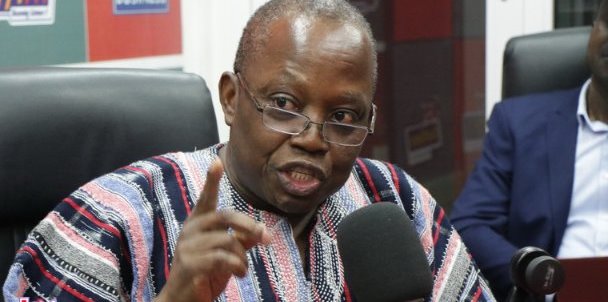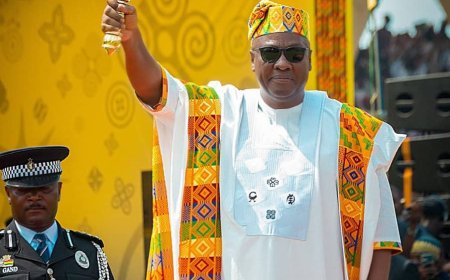Parliament Seating Dispute: You can sit anywhere, I don’t decide where MPs sit - Bagbin

Accra, Ghana - Nov 6, 2024 - Ghana's Speaker of Parliament Alban Bagbin has weighed in on the ongoing dispute over seating arrangements in Parliament, emphasizing that determining where Members of Parliament (MPs) sit is not within his mandate.
This clarification comes after Bagbin's recent declaration of four parliamentary seats as vacant sparked debate among MPs over which party holds the majority.
Seating Dispute Roots
The National Democratic Congress (NDC) Caucus claims they now hold the majority position, while other parties interpret the implications of the vacant seats differently. Bagbin's declaration has ignited a heated discussion on parliamentary seating arrangements and majority status.
Westminster System Influence
Ghana's Parliament draws from the Westminster system, traditionally reserving certain seating areas for the majority party. However, Bagbin stressed that this is not a binding rule. Instead, seating arrangements are guided by parliamentary conventions and the prevailing balance of power.
Bagbin's Call to Action
The Speaker urged MPs to prioritize upholding parliamentary order and functionality, resolving critical issues through dialogue among leadership rather than seating disputes.
“It is not part of the duties of a speaker to decide where an MP should be in parliament. That determination in Ghana’s constitution doesn’t exist. In various parliaments, these things we are talking about; majority and minority don’t exist any longer. That is why in my ruling, I used the term old school, which is the British model; the government and opposition''.
“…You can sit anywhere, but the numbers determine who is the majority and who is the minority. In our parliament, the practice is for those who constitute the majority to sit on the right side of the speaker and those who constitute the minority to sit on the left side of the speaker,'' Bagbin stated, highlighting that Ghana's constitution does not dictate seating arrangements.
Parliamentary Practice
In Ghana's Parliament, the majority typically sits on the right side of the Speaker, while the minority occupies the left. This practice stems from the Westminster system adopted after independence in 1957. However, Bagbin noted that the current horseshoe arrangement deviates from this tradition, and seating does not always reflect majority or minority status.
“That is because, after independence in 1957, we adopted the Westminster system, which is practised in the United Kingdom. But we changed that even to the extent that the arrangement on the floor of the house is in a horseshoe. So, it is not always the case that the people to the left side are all members of a minority, that is not the case now and there is good reason,” he stated.
Source: Lead News Online
























































